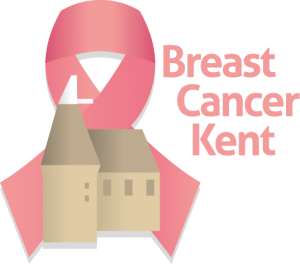We recognise this is a difficult and uncertain time for everyone and that people with cancer and their families might feel especially worried about the virus.
The Kent Oncology Centre team would like to reassure you that we are doing our best to provide you with the expert care, treatment and support that you deserve and expect from us.
Whilst the team will endeavour to deal with all individual enquiries as quickly as possible this set of frequently asked questions has been developed to help alleviate some of the concerns and worries cancer patients, and their families, may be feeling at this time.
Some people with cancer are more at risk of becoming seriously ill should they contract coronavirus (COVID-19) including:
- People having chemotherapy, or who have received chemotherapy in the last 3 months
- People having immunotherapy or other continuing antibody treatments for cancer
- People having other targeted cancer treatments which can affect the immune system, such as protein kinase inhibitors or PARP inhibitors
- People having intensive (radical) radiotherapy for lung cancer
- People who have had bone marrow or stem cell transplants in the last 6 months, or who are still taking immunosuppression drugs
- People with cancers of the blood or bone marrow such as leukaemia, lymphoma or myeloma who are at any stage of treatment
What can I do to reduce the risk of contracting coronavirus (COVID-19)?
To reduce the risk of contracting the virus it is important that patients follow the national Government guidance on shielding and protecting people defined on medical grounds as extremely vulnerable from COVID-19.
People who fall into this extremely vulnerable group include those with specific cancers which are listed above. If you have received notification from the NHS that you are deemed to be ‘extremely vulnerable’ and at greater risk of contracting COVID-19 you will be required to follow the NHS guidance on ‘shielding’.
People currently receiving (or who have received within the last 3 months) Systemic Anti Cancer Therapy (SACT) – chemotherapy, immunotherapy, targeted treatments (such as protein kinase inhibitors or PARP inhibitors)
If you are receiving SACT you should self-isolate until further notice or for a minimum of 3 weeks after your final treatment. You should avoid close contact with other household members and follow the NHS guidance on self-isolation.
What should I do if I’m having chemotherapy and feeling unwell or get a temperature?
For any urgent chemotherapy enquiries please call the emergency triage telephone number 07717 343134. This number is for urgent medical advice for patients who are having chemotherapy only.
All other enquiries should be directed to 01622 225020.
A member of my family/household has become unwell. I’m worried they have the virus, what should I do?
If someone is displaying symptoms of coronavirus illness the Government’s advice is that they must stay at home for 7 days. All other household members who remain well must stay at home and not leave the house for 14 days. The 14 day period starts from the day when the first person becomes ill. For anyone else in the household who starts displaying symptoms, they need to stay at home for 7 days from when the symptoms appeared, regardless of what day they are on in the original 14 day isolation period.
Vulnerable individuals (such as the elderly and those with underlying health conditions) should be moved out of the home to stay with friends or family during the home isolation period. Vulnerable people who can’t be moved out of the home are advised to stay away from the person displaying the symptoms as much as possible.
If you need help with care but you’re not sure who to contact, or if you do not have family or friends who can help, contact your local council who should be able to help you.
Carers UK have also produced advice for those currently caring for others.
Should I still attend the Kent Oncology Centre for treatment? / Will my treatment still go ahead?
At the moment, all treatments are carrying on as normal. Please be aware that there may be longer waiting times than usual on the chemotherapy units due to staff shortages so please bear with us if you are asked to wait.
If your treatment does need to be rescheduled for any reason, we will contact you directly to notify you of any changes in advance.
If I have to come to the hospital what arrangements are in place to shorten my visit as much as possible?
Maidstone Hospital – Patients are encouraged to use the drop off area by the entrance to the Kent Oncology Centre. Please DO NOT park in the area.
Tunbridge Wells Hospital – Patients are encouraged to use the drop off area by the main entrance. Please DO NOT park in the area.
I’m worried about getting to my appointments, is hospital transport still available?
Patient transport is available for those who require it and who meet the set criteria. To arrange transport call 0800 096 0211. Where possible, patients are encouraged to look at other methods of transport to attend their hospital appointments.
Can I still bring a friend or relative with me to my appointment / treatment?
The safety of our patients and staff is a top priority for us. To help reduce everyone’s risk of exposure to coronavirus we’re currently not allowing any visitors onto our treatment units.
Similarly, we ask patients attending for radiotherapy or any routine visits to attend alone if at all possible.
If the situation worsens will my treatment still go ahead? / Will my treatment be stopped if the pandemic worsens?
It is possible some treatments may need to be delayed or stopped temporarily if the situation worsens. If this proves necessary, your consultant will discuss any changes with you before any decision is made.
If treatment capacity is reduced, NHS England guidance will be followed to ensure that only those treatments of minimal benefit will be postponed or discontinued. If it becomes necessary to delay treatment a clinician will discuss any proposed changes with you before a decision is made.
Should I attend my routine clinic appointment?
We are conducting appointments via telephone or video link in order to minimise visits to the hospital. We will conduct face-to-face appointments where necessary, whilst taking all steps to minimise the risk of exposure.
I’m on oral medication / need a repeat prescription; can someone else collect this for me?
Yes, someone else can collect your medication for you, though this will need to be agreed in advance and they may be asked to provide identification.
Can I get a longer supply of my medication?
Please contact your Clinical Nurse Specialist to arrange this. Wherever possible we will provide longer supplies of medication.
Will there be problems accessing my cancer drugs?
There are currently no medicine shortages as a result of coronavirus. The country has stockpiles of generic drugs like paracetamol in the event of any supply issues. The Department of Health and Social Care is working closely with industry, the NHS and others in the supply chain to ensure patients can access the medicines they need and precautions are in place to prevent future shortages.
Patients should always follow the advice of doctors, pharmacists or other prescribers who prescribe and dispense their medicines and medical products. The NHS has tried-and-tested ways of making sure patients receive their medicines and medical products, even under difficult circumstances. If patients order extra prescriptions, or stockpile, it will put pressure on stocks, meaning that some patients may not get the medicines or medical products they need.
I’m having hormone treatment (eg: tamoxifen, letrozole, exemestane), does that mean I’m in a high risk group?
No. Hormone
treatments do not suppress the immune system and do not put you at additional
risk of contracting the virus or of serious complications if you become
infected.
People who have previously been treated for cancer/completed treatment more than 3 months ago
I’ve previously been treated for cancer, am I at increased risk from the virus?
Your risk from coronavirus will not be significantly greater than that of the general population if:
- You received chemotherapy or immunotherapy and completed treatment more than 3 months ago
- You underwent curative surgery and / or radiotherapy for cancer in the past
You must still follow the current Government advice to minimise exposure.
People who are currently being investigated for cancer or those requiring surgical treatment
I’m having tests for cancer, will these all still go ahead?
Cancer investigations are continuing as normal. It may be necessary for some consultations to be conducted by telephone or video call.
If the situation escalates, it is possible that some tests may need to be delayed. We will keep you informed of any changes or delays as we become aware of them.
I’ve been told that I need surgery, will this still go ahead?
Cancer surgery remains a priority and is still going ahead where it is necessary and safe to do.
If the situation escalates, it is possible that surgery may take place at a different hospital to that originally planned. We will keep you informed of any changes or delays as we become aware of them.
What can you do?
There are a variety of ways that you can help us including:
- Ensuring that we have up to date contact details for you and your next of kin.
- Using the emergency triage telephone number only in a medical emergency.
- Using alternative numbers to contact us about appointment or other enquiries.
There are a variety of ways that you can help yourself including:
- Continue to eat a healthy balanced diet, maintaining your weight wherever possible.
- Maintain your physical activity levels – we know that this is going to be more difficult when self-isolating but it really can help with your physical and emotional wellbeing and reduce treatment side effects.
- Look after your emotional wellbeing by being kind to yourself, doing something at home that you enjoy or consider practicing mindfulness or breathing techniques using an App of your choosing such as Chill Panda (a free app being tested in the NHS). Alternatively consider the resources available from Mind.
Please
always refer to the NHS advice for general
measures and information related to COVID-19 /coronavirus.
Further support and information
Macmillan Information Centre at Maidstone Hospital – although the centre is unable to provide face-to-face support at the moment, it is providing a listening ear, advice and support over the phone.
Opening hours: 8am until 5pm Monday to Friday.
Telephone: 01622 227064
Macmillan Support Line can help with practical, financial, clinical and emotional support.
Opening hours: 8am until 5pm 7 days a week.
Telephone: 0808 808 00 00
You may find it helpful to read further information on the impact of coronavirus for cancer patients from the 10 major cancer charities.
Updates
Please remember, this is a rapidly changing situation. If there are major changes to the information above this document will be updated at the earliest opportunity.
Last updated 23 March 2020

